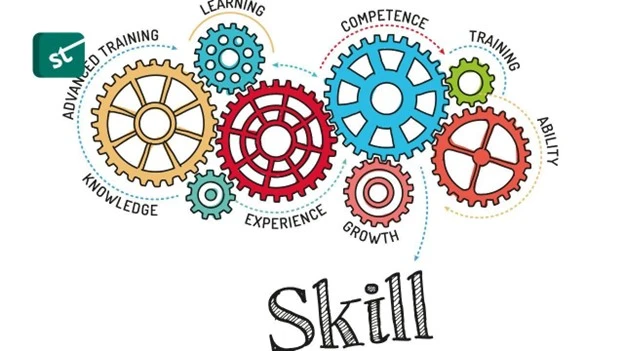In today’s fast-paced world, financial literacy is essential for everyone, regardless of age or background. However, many people find money management to be an overwhelming and intimidating subject and are unsure of where to start. That’s where “Learning About Money” comes in.
This article provides beginners with all the information about how to learn money making and build a strong foundation for their financial future.
From how to learn money making techniques to advanced investment strategies, it covers all aspects of money management in an easy-to-understand format. With relatable examples and practical advice, this guide will help readers develop the skills and confidence they need to make informed decisions about their money.
What is Money?
Money is a medium of exchange that is widely accepted in transactions for goods, services, and debts. It is a system of currency that facilitates trade and serves as a measure of value and a store of wealth. Money can take various forms, including coins, banknotes, and digital currencies.
Money serves several functions in an economy. It acts as a unit of account, providing a common measure of the value of goods and services. It serves as a medium of exchange, enabling individuals to trade goods and services without the need for bartering.

Money also functions as a store of value, allowing individuals to accumulate wealth and save for the future. In modern economies, money is typically issued and regulated by a central authority, such as a government or a central bank.
It is often backed by the trust and confidence of the users and the stability of the issuing authority. The value of money can be influenced by factors such as inflation, interest rates, and the overall state of the economy.
Why Is It Important to Learn About Money?
-
Financial Independence
How to learn about money empowers individuals to make better financial decisions and achieve financial independence. It equips them with the knowledge and skills necessary to manage their income, expenses, savings, and investments effectively.
-
Financial Well-Being
Money management skills contribute to overall financial well-being. Learning about money, saving, and debt management helps individuals maintain financial stability, reduce financial stress, and achieve their financial goals.
-
Economic Participation
Money is an integral part of the economy, and understanding how it works allows individuals to actively participate in economic activities.
Learning about money enables them to make educated choices as consumers, entrepreneurs, and investors, contributing to economic growth and development.
-
Long-Term Planning
Learning about money involves understanding concepts such as financial planning, retirement planning, and investment strategies. This knowledge helps individuals make long-term financial plans, build wealth, and secure their future.
-
Avoiding Financial Pitfalls
Knowledge about money helps individuals identify and avoid common financial pitfalls and scams. It equips them with the ability to recognize and assess financial risks, protect themselves from fraud, and make sound financial decisions.
-
Responsible Citizenship
Understanding money and personal finance promotes responsible citizenship. Learning about money empowers individuals to advocate for their financial interests and engage in discussions about economic matters.
-
Entrepreneurship and Innovation
Learning about money fosters an entrepreneurial mindset and encourages innovation. It equips individuals with the skills to identify opportunities, manage risks, and create sustainable businesses.
Understanding financial concepts is crucial for successful entrepreneurship and innovation.
In today’s fast-paced world, financial literacy is essential for everyone, regardless of age or background. However, many people find money management to be an overwhelming and intimidating subject and are unsure of where to start. That’s where “how to learn about money” comes in.
From how to learn about money-making techniques to advanced investment strategies, this article covers all aspects of money management in an easy-to-understand format.
How To Learn Money Making?
How to learn money making can be a challenging but rewarding process. Here are a few tips to get started:
-
Educate Yourself
Start by reading books, attending workshops, or taking courses that teach you about different types of investments, saving strategies, and financial planning. Learn about different industries and markets, and how they operate.
-
Develop a Skill
One of the best ways to make money is by developing a skill that is in demand. This could be anything from web development to writing, graphic design, or photography. Once you have honed your skill, you can offer your services as a freelancer or start your own business.
-
Create Passive Income
Passive income is money earned through investments or other sources that require little to no effort on your part. Examples include rental properties, dividend-paying stocks, and online businesses.
-
Network
Building relationships with others in your industry or community can help you discover new opportunities and learn from others’ experiences.
Getting Started with Money Management
Here are some important tips on learning about money management to consider:
-
Assessing Your Financial Situation
Begin by evaluating your current financial situation. Take stock of your income, expenses, debts, and assets. This assessment will give you a clear understanding of your financial standing and help you identify areas that need improvement.
-
Setting Financial Goals
One of the most important tips in learning about money management is to determine short-term and long-term financial goals.
These goals could include saving for a down payment on a house, paying off debt, building an emergency fund, or planning for retirement. Setting specific and measurable goals will give you direction and motivation.

-
Creating a Budget
A budget is a crucial tool for managing your money effectively. Start by listing your income sources and then track your monthly expenses.
Categorize your expenses into fixed (e.g., rent, loan payments) and variable (e.g., groceries, entertainment). Allocate a portion of your income towards savings and prioritize your spending based on your financial goals.
-
Tracking Expenses and Income
Monitor your expenses and income regularly to ensure they align with your budget. Keep track of your receipts, bills, and bank statements.
Use personal finance apps or spreadsheets to track your expenses and income. This practice will help you identify areas where you can cut back, control overspending, and make adjustments to your budget as needed.
-
Building an Emergency Fund
Finally, one of the most crucial money management tips for beginners is to create an emergency fund for unexpected expenses or financial emergencies. Aim to save three to six months’ worth of living expenses.
Start by setting aside a small portion of your income each month and gradually build up your emergency fund. It provides financial security and helps you avoid taking on debt in times of crisis.
Tips To Learn How To Make Money As A Beginner
Here are some tips for beginners who are keen to find the tricks of how to learn how to make money:
-
Start With The Basics
Before you can start making money, you need to understand the basics of personal finance. Learn how to create and stick to a budget, manage your debt, and save for the future.
-
Focus on Your Skills
Identify your strengths and interests and figure out how to turn them into a marketable skill. Take courses, attend workshops, or get certified in your area of expertise.

-
Explore Online Opportunities
The internet has made it easier than ever to make money online. Consider starting a blog, creating an online store, or freelancing on platforms such as Upwork or Fiverr.
-
Network
Attend events or join online groups related to your area of interest to meet other professionals and potential clients. Building relationships is essential for any business, including one that involves making money.
-
Don’t Be Afraid to Start Small
Making money takes time and effort, and success is rarely immediate. Start small, with simple projects or part-time work, and gradually build up your skills and reputation.
-
Learn from Others
Seek mentors or experts in your field, read blogs or books, and attend conferences to learn from those who have already achieved success.
Common Money Mistakes to Avoid
Managing money effectively involves not only adopting good financial practices but also avoiding common money mistakes that can hinder your financial progress. Here are some common money mistakes to steer clear of
-
Overspending and Impulse Buying
One of the most common money mistakes is spending beyond your means or succumbing to impulse buying. This can lead to financial instability and hinder your ability to save and reach your financial goals.
To avoid this, practice mindful spending, create a budget, and differentiate between needs and wants. Give yourself time before making impulsive purchases and consider the long-term impact on your finances.
-
Neglecting Savings and Emergency Funds
Failing to prioritize savings is another mistake to avoid. Many people overlook the importance of saving for the future, whether it’s for emergencies, retirement, or other financial goals. Make saving a priority by setting aside a portion of your income regularly.
Establish an emergency fund to handle unexpected expenses, as it can help you avoid going into debt during challenging times.
-
Taking on Excessive Debt
Excessive debt can be a major hindrance to financial stability and growth. Avoid taking on more debt than you can handle and be cautious about accumulating high-interest debt.
Practice responsible borrowing and consider alternatives such as saving up for purchases instead of relying on credit. If you have existing debt, develop a plan to pay it off strategically and avoid unnecessary interest charges.
-
Ignoring Financial Planning and Investing
Neglecting financial planning and investing can limit your ability to grow your wealth and secure your future. Failing to create a financial plan, set goals, and invest wisely can lead to missed opportunities for long-term financial growth.
Educate yourself about investing options, consider working with a financial advisor, and develop a well-rounded financial plan that aligns with your goals and risk tolerance.
Understanding Finance For Beginners
Finance can be a complex and daunting subject, but understanding the basics is essential for anyone looking to manage their personal finances or start a business. Here are some concepts that are important to understand finance for beginners:
-
Budgeting
Creating and sticking to a budget is crucial for managing your money. This involves identifying your income and expenses and ensuring that you are spending within your means.
-
Saving
Building up savings is important for emergencies and long-term financial goals. Consider setting up a savings account or investing in low-risk options such as bonds.
-
Debt
Understanding how debt works and managing it effectively is essential for financial success. This involves prioritizing high-interest debt and creating a plan for paying it off.
-
Investments
Investing your money in stocks, mutual funds, real estate or other assets can help grow your wealth over time. It’s important to do your research and make informed decisions about your investments.
-
Taxes
Understanding the basics of taxes, such as deductions and credits, can help you save money and avoid costly mistakes.
-
Insurance
Protecting yourself and your assets with insurance is important for mitigating risk. Consider purchasing health, home, and auto insurance, as well as life insurance if you have dependents.
-
Retirement Planning
Planning for retirement early can help ensure that you have enough money to live comfortably when you stop working. Consider contributing to a retirement account, such as a 401(k) or IRA.
Developing Money-Making Skills
Developing money-making skills is an excellent way to increase your earning potential and enhance your financial situation. Here are some avenues to consider:
-
Education and Skill Development
Investing in your education and skill development can significantly boost your earning potential. Identify areas of interest or industries that have a high demand for specific skills.
Consider pursuing formal education, certifications, or training programs that can enhance your expertise and qualifications. Continuously upgrading your skills can open up new career opportunities and potentially lead to higher-paying jobs.
-
Entrepreneurship and Business Ownership
Entrepreneurship offers the opportunity to create your own business and generate income on your terms. Identify your strengths, passions, and areas of expertise. Conduct market research to identify potential business ideas and evaluate their feasibility.
Develop a business plan, secure the necessary funding, and launch your venture. Owning a business allows you to control your income potential and build wealth over time.
-
Freelancing and Side Hustles
Freelancing and side hustles provide additional income streams and flexibility. Assess your skills and interests to identify services or products you can offer as a freelancer or through a side business.
Popular options include graphic design, writing, coding, consulting, tutoring, or selling handmade goods. Utilize online platforms, social media, or local networks to market your services and secure clients or customers.
-
Passive Income Streams
Passive income refers to earning money with minimal effort or ongoing involvement. It involves setting up income streams that generate revenue continuously.
Examples of passive income sources include rental properties, dividend-paying investments, royalties from creative works, affiliate marketing, or creating and selling digital products.
Building passive income streams requires an upfront investment of time, money, or resources but can provide financial stability and long-term wealth accumulation.
Why Is Financial Knowledge Essential For Investors?
Financial knowledge is essential for investors for several reasons:
-
Making Informed Decisions
Investors need to make informed decisions about their investments, and financial knowledge is essential for this. Understanding financial statements, ratios, and other financial data can help investors evaluate the performance and potential of a company.
-
Minimizing Risk
Investing involves risk, and financial knowledge can help investors minimize this risk. By understanding the financial health of a company, investors can make more informed decisions and avoid investing in companies that are financially unstable.
-
Creating a Diversified Portfolio
Diversification is key to managing risk in an investment portfolio. Financial knowledge can help investors identify different types of assets and investment strategies that can be used to build a diversified portfolio.
-
Understanding Market Trends
Financial knowledge can help investors stay up to date on market trends and make more informed investment decisions. This involves monitoring economic indicators, news events, and other factors that can affect the performance of investments.
-
Managing Personal Finances
Financial knowledge is also essential for managing personal finances. Investors need to understand budgeting, debt management, and other financial concepts to ensure that they have the financial resources to invest and meet their long-term goals.
Resources and Tools for Learning About Money
Financial knowledge are also essential for managing personal finances. Investors need to understand budgeting, debt management, and other financial concepts to ensure that they have the financial resources to invest and meet their long-term goals.
When it comes to learning about money, there are numerous resources and tools available to help you gain knowledge and improve your financial literacy. Here are some valuable options to consider:
Books and Publications
“The Total Money Makeover” by Dave Ramsey
“The Total Money Makeover” by Dave Ramsey is a personal finance book that provides a step-by-step plan for achieving financial freedom and living a debt-free life. Here are some key concepts and principles discussed in the book:
-
The Debt Snowball Method
Ramsey introduces the debt snowball method, where you focus on paying off your smallest debts first, regardless of interest rates. By eliminating smaller debts quickly, you gain momentum and motivation to tackle larger debts.
-
Building an Emergency Fund
Ramsey emphasizes the importance of having an emergency fund as a financial safety net. He suggests saving three to six months’ worth of living expenses to cover unexpected events and avoid going into debt.
-
The Envelope System
This method involves using cash and dividing it into envelopes allocated for different spending categories, such as groceries, entertainment, or clothing. The goal is to stick to the allocated amount in each envelope and avoid overspending.
-
Creating a Budget
Ramsey stresses the significance of creating and following a budget to gain control over your finances. He provides practical advice on budgeting, tracking expenses, and ensuring that every dollar has a purpose.
-
Investing and Retirement
The book also covers the importance of investing for the future and planning for retirement. Ramsey encourages readers to contribute to retirement accounts and explains various investment options, such as mutual funds and individual retirement accounts (IRAs).
-
The Importance of Giving
Ramsey promotes the idea of being generous and giving back. He suggests allocating a portion of your income to charitable donations or helping others in need.
“Rich Dad Poor Dad” by Robert Kiyosaki
“Rich Dad Poor Dad” by Robert Kiyosaki is a personal finance book that explores the differences in mindset and financial education between two fathers – Kiyosaki’s own biological father (poor dad) and the father of his best friend (rich dad). Here are some key ideas and concepts discussed in the book:
-
The Importance of Financial Education
Kiyosaki emphasizes the value of financial education, arguing that traditional schooling often neglects teaching practical money management skills. He advocates for learning about assets, liabilities, cash flow, and investing to achieve financial independence.
-
The Cash Flow Quadrant
Kiyosaki introduces the concept of the Cash Flow Quadrant, which categorizes people into four groups based on their primary income source: Employees, Self-Employed, Business Owners, and Investors. He encourages readers to aim for the right side of the quadrant (Business Owners and Investors) to generate passive income and build wealth.
-
The Difference Between Assets and Liabilities
The book distinguishes between assets and liabilities. Assets are defined as things that generate income and appreciate in value, while liabilities are things that drain money from your pocket. Kiyosaki encourages acquiring income-generating assets and avoiding excessive liabilities.
-
The Power of Financial Leverage
Kiyosaki explains the concept of financial leverage and how it can be used to accelerate wealth-building. He discusses using other people’s money (OPM) to invest and create cash flow, such as through real estate or business ventures.
-
The Role of Mindset and Risk-Taking
The book explores the importance of adopting a mindset that embraces financial risk-taking and learning from failures. Kiyosaki encourages readers to overcome fear and develop their entrepreneurial spirit.
-
Wealth-Building Strategies
Kiyosaki shares various strategies for building wealth, including starting your own business, investing in real estate, and investing in stocks and other financial instruments. He emphasizes the need for continuous learning and adapting to changing market conditions.
“I Will Teach You to Be Rich” by Ramit Sethi
“I Will Teach You to Be Rich” by Ramit Sethi is a personal finance book that aims to provide a practical and actionable roadmap for achieving financial success. Here are some key ideas and concepts discussed in the book:
-
Setting Up a Solid Foundation
Sethi emphasizes the importance of establishing a strong financial foundation, which includes automating finances, setting up a system for tracking expenses, and optimizing bank accounts and credit cards to maximize benefits and minimize fees.
-
Conscious Spending
The book promotes the idea of conscious spending, where you focus on spending money on the things you truly value while cutting back on wasteful expenses. Sethi encourages readers to align their spending with their values and suggests strategies for negotiating bills and saving on everyday expenses.
-
Investing in the Long Term
Sethi provides an overview of various investment options, such as index funds and retirement accounts (like IRAs and 401(k)s). He emphasizes the importance of starting early, taking advantage of employer matches, and developing a long-term investment strategy to build wealth over time.
-
Smart Saving and Debt Management
The book discusses strategies for saving money, including setting up automatic transfers to savings accounts and creating separate savings funds for specific goals. Sethi also addresses the management of student loans and credit card debt, offering tips for negotiating interest rates and creating a plan to pay off debt efficiently.
-
Building a Rich Life
Sethi encourages readers to define what a “rich life” means to them and develop a plan to achieve it. He discusses strategies for increasing income, pursuing career growth opportunities, and creating multiple income streams.
-
Mindset and Behavior
The book emphasizes the importance of adopting a positive money mindset and addressing the psychological barriers that may hinder financial success. Sethi provides insights on how to overcome common money-related fears and limitations.
“I Will Teach You to Be Rich” provides a practical and straightforward approach to personal finance, focusing on optimizing key financial areas and implementing practical strategies to build wealth and live a fulfilling life. It combines actionable advice with humor and real-life examples to engage readers and motivate them to take control of their finances.
“The Intelligent Investor” by Benjamin Graham
“The Intelligent Investor” by Benjamin Graham is considered a classic investment book and is highly regarded for its timeless principles of value investing. Here are some key ideas and concepts discussed in the book:
-
Value Investing
Graham introduces the concept of value investing, which involves identifying and investing in stocks that are undervalued relative to their intrinsic value.
He emphasizes the importance of thorough analysis, focusing on the underlying fundamentals of companies rather than short-term market trends.
-
Margin of Safety
Graham emphasizes the concept of a margin of safety, which involves buying securities at a price significantly below their intrinsic value. This provides a cushion against potential losses and minimizes risk. He encourages investors to prioritize preserving capital over chasing speculative gains.
-
Market and Market Fluctuations
Graham uses the metaphor of Mr. Market to illustrate the fluctuating and often irrational behavior of the stock market. He advises investors to view market fluctuations as opportunities to buy undervalued stocks or sell overvalued ones, rather than being swayed by short-term market sentiment.
-
Defensive Investing
Graham suggests adopting a defensive approach to investing, focusing on minimizing risk and avoiding speculative investments. He advises diversifying holdings, analyzing financial statements, and conducting thorough research before making investment decisions.
-
Bonds and Fixed-Income Securities
The book covers the basics of bonds and fixed-income securities, providing insights into assessing credit quality, understanding bond yields, and evaluating the risks and rewards associated with fixed-income investments.
-
Investor Psychology
Graham discusses the impact of emotions and investor psychology on investment decisions. He emphasizes the importance of discipline, rationality, and a long-term perspective in investing while avoiding common pitfalls such as herd mentality and succumbing to market fluctuations.
“Your Money or Your Life” by Vicki Robin and Joe Dominguez
“Your Money or Your Life” by Vicki Robin and Joe Dominguez is a personal finance book that focuses on the relationship between money, life energy, and achieving financial independence. Here are some key ideas and concepts discussed in the book:
-
Assessing True Financial Status
The book encourages readers to assess their true financial status by considering their lifetime earnings and total money spent. It introduces the concept of the “money-life” equation, where individuals exchange their life energy (time spent working) for money.
-
Rethinking Materialism and Consumerism
Robin and Dominguez challenge the conventional idea of equating money with happiness and advocate for a shift in mindset from materialistic consumption to mindful spending.
They encourage readers to align their spending with their values and question the true worth of possessions.
-
Tracking and Reducing Expenses
The book emphasizes the importance of tracking and categorizing expenses to gain awareness of how money is being used.
It introduces a nine-step program for transforming your relationship with money, including steps for reducing expenses, cutting waste, and creating a budget.
-
Achieving Financial Independence
Robin and Dominguez introduce the concept of financial independence, which they define as having enough passive income to cover living expenses, thereby giving individuals the freedom to choose how they spend their time.
They provide guidance on saving, investing, and creating alternative income streams to reach this goal.
-
Value of Time and Life Energy
The authors highlight the value of time and life energy, emphasizing the need to consider the trade-off between work and personal fulfillment.
They encourage readers to calculate their real hourly wage, factoring in commuting time and other job-related expenses, to better understand the impact of work on overall well-being.
-
Sustainability and Environmental Consciousness
“Your Money or Your Life” also touches on the connection between personal finance and environmental sustainability.
It discusses the impact of consumerism on the environment and promotes mindful consumption as a way to reduce waste and live in alignment with ecological values.
Online Courses and Tutorials
Coursera
Coursera offers a variety of courses on personal finance, investing, and financial planning. Here are some examples:
- Personal & Family Financial Planning Specialization by the University of Florida:
- Personal & Family Financial Planning
- Personal Finance Strategies for Savings and Investing
- Personal Finance: Managing Your Money
- Investment Management Specialization by the University of Geneva:
- Introduction to Financial Markets
- Portfolio and Risk Management
- Behavioral Finance and Investment Strategy
- Financial Planning for Young Adults by the University of Illinois at Urbana-Champaign
- Personal Finance: Financial Planning and Budgeting by California State University, Northridge
- Introduction to Investments by University of Illinois at Urbana-Champaign
- Financial Planning for Retirement by University of Illinois at Urbana-Champaign
- Stock Market Investing for Beginners by Michigan State University
- Fundamentals of Personal Financial Planning by University of California, Irvine
- Behavioral Finance by Duke University
- Financial Planning for Young Adults by the University of Illinois at Urbana-Champaign
- Real Estate Investment and Valuation by University of Illinois at Urbana-Champaign
- Financial Markets by Yale University
- Financial Planning for Families and Individuals by Purdue University
- Introduction to Corporate Finance by the University of Pennsylvania
- Financial Planning Capstone by University of Illinois at Urbana-Champaign
Khan Academy
Khan Academy offers a range of free online courses and tutorials covering various aspects of personal finance, including budgeting, investing, and retirement planning. Here are some examples:
-
Personal Finance Basics
-
- Budgeting
- Saving and Budgeting
- Types of Investments
- Retirement Accounts
- Introduction to Compound Interest
-
-
Investing
-
-
- Stocks and Bonds
- Mutual Funds and ETFs
- Dollar-Cost Averaging
- Risk and Diversification
- Introduction to Risk and Return
-
-
-
Retirement Planning
-
-
- Retirement Planning and Employee Benefits
- Roth IRAs
- Traditional IRAs
- 401(k) Plans
- Social Security and Medicare
-
-
-
Credit and Debt
-
-
- Credit Cards
- Credit Scores and Reports
- Interest and Debt
- Paying Off Debt
- Student Loans
-
-
-
Taxes
-
-
- Introduction to Taxes
- Tax Brackets and Marginal Tax Rates
- Tax Credits and Deductions
- Tax-Advantaged Accounts
-
-
-
Housing and Real Estate
-
-
- Renting vs. Buying a Home
- Mortgages
- Refinancing a Mortgage
- Home Equity Loans and Lines of Credit
-
-
Udemy
Here are some examples of paid and affordable courses on finance, investing, and money management taught by industry experts:
- “The Complete Financial Analyst Course” on Udemy by 365 Careers
- “Value Investing Bootcamp: How to Invest Wisely” on Udemy by Nick Kraakman
- “Financial Markets” on Coursera by Yale University
- “Fundamentals of Investing” on Coursera by the University of Geneva
- “Investing in Stocks: The Complete Course!” on Udemy by Steve Ballinger
- “Personal Finance Masterclass” on Udemy by Phil Ebiner and Michael Moyer
- “The Complete Investment Banking Course” on Udemy by 365 Careers
- “Stock Market Investing for Beginners” on Udemy by Jatin Taneja
- “Introduction to Corporate Finance” on edX by Columbia University
- “Financial Planning and Analysis: Building a Company’s Budget” on Udemy by 365 Careers
- “Investing 101: The Complete Online Investing Course” on Skillshare by Andrew P.C.
- “Introduction to Investing” on edX by The University of Melbourne
- “The Foundations of Finance: How to Start Investing” on Skillshare by Matthew MacPherson
- “Financial Planning for Young Adults” on FutureLearn by Purdue University
- “Real Estate Investing: Learn to Fix & Flip, Step by Step” on Udemy by Symon He
Financial Apps and Tools
Mint
Mint is a popular budgeting app that helps individuals track expenses, create budgets, and monitor their financial goals. Here’s an overview of how Mint assists users in managing their finances:
-
Expense Tracking
- Linking Accounts: Mint allows users to securely link their bank accounts, credit cards, loans, and other financial accounts to the app.
- Automatic Transaction Updates: The app automatically pulls transaction data from linked accounts and categorizes expenses, saving users the effort of manual entry.
- Real-Time Updates: Users can view their updated financial information, including income, expenses, and account balances, in real time.
-
Budget Creation
- Customizable Budgets: Mint enables users to create personalized budgets based on their income, expenses, and financial goals.
- Categorization and Allocations: Users can assign specific categories and allocate amounts to different budget categories, such as groceries, transportation, or entertainment.
- Alerts and Notifications: Mint sends alerts and notifications to users when they exceed their budgeted amounts or approach certain spending thresholds.
-
Goal Monitoring
- Financial Goal Setting: Users can set various financial goals, such as saving for a down payment, paying off debt, or building an emergency fund.
- Progress Tracking: Mint provides a visual representation of progress towards financial goals, allowing users to monitor their achievements over time.
- Recommendations and Insights: The app offers personalized recommendations and insights based on users’ financial data to help them make informed decisions and stay on track with their goals.
-
Bill Tracking and Reminders
- Bill Tracking: Mint tracks users’ bills, due dates, and payment history, providing a centralized overview of upcoming and past payments.
- Payment Reminders: The app sends reminders and alerts to ensure that users don’t miss bill payments or incur late fees.
-
Financial Insights and Analysis
- Trends and Patterns: Mint provides visualizations and reports that highlight spending trends, patterns, and areas where users can potentially save money.
- Net Worth Calculation: The app calculates users’ net worth by considering their assets and liabilities, helping them monitor their overall financial health.
- Credit Score Monitoring: Mint offers free credit score monitoring and provides insights on factors that impact users’ credit scores.
Personal Capital
Personal Capital offers a range of tools to assist users in managing investments, tracking net worth, and planning for retirement. Here are some key features and tools provided by Personal Capital:
-
Investment Management
- Investment Tracking: Users can link their investment accounts, including brokerage accounts, retirement accounts, and 401(k) plans, to Personal Capital for a comprehensive view of their investment portfolio.
- Portfolio Analysis: The platform provides a detailed analysis of investment portfolios, including asset allocation, diversification, and performance metrics.
- Fee Analyzer: Personal Capital analyzes investment fees, including expense ratios and advisory fees, to help users understand the impact of costs on their investments.
-
Net Worth Tracking
- Account Aggregation: Users can link various financial accounts, such as bank accounts, credit cards, loans, mortgages, and real estate, to track their overall net worth in real-time.
- Visualizations and Trends: Personal Capital offers visual representations and trends to help users monitor their net worth over time and understand the composition of their assets and liabilities.
-
Retirement Planning
- Retirement Calculator: Personal Capital provides a retirement calculator that takes into account users’ income, expenses, savings, and investment performance to estimate their retirement readiness and project future income needs.
- Retirement Goal Setting: Users can set retirement goals and track their progress towards achieving them based on personalized savings and investment strategies.
- Social Security Optimization: Personal Capital offers tools to help users optimize their Social Security benefits by considering factors such as age, earnings history, and claiming strategies.
-
Financial Planning
- Cash Flow Analysis: The platform analyzes users’ income and expenses to provide insights into their cash flow and spending patterns.
- Budgeting Tools: Personal Capital offers budgeting features to track and categorize expenses, helping users manage their spending and identify areas for potential savings.
- Education Planning: The platform provides tools to plan for education expenses, including college savings strategies and projected costs
-
Personalized Advice
- Financial Advisors: Personal Capital offers access to a team of registered financial advisors who can provide personalized guidance and advice tailored to users’ specific financial goals and circumstances.
YNAB (You Need a Budget)
YNAB (You Need a Budget) is a budgeting app that focuses on helping users allocate their income and prioritize spending based on their financial goals. Here’s an overview of how YNAB accomplishes this:
-
Zero-Based Budgeting
YNAB follows the principle of zero-based budgeting, which means that every dollar of income is assigned a specific purpose within the budget. Users allocate their income across different categories, such as housing, transportation, groceries, savings, and debt repayment.
-
Goal Setting
YNAB allows users to set financial goals within each budget category. These goals can include saving for emergencies, paying off debt, saving for a vacation, or any other financial objective. Users can define the target amount and timeline for each goal.
-
Real-Time Expense Tracking
YNAB provides tools to track expenses in real time. Users can manually enter transactions or link their accounts to the app to automatically import transactions. By categorizing expenses, users can see a breakdown of their spending habits and identify areas where adjustments may be needed.
-
Rule-Based Budgeting
YNAB uses specific rules to guide users’ budgeting decisions. One of the key rules is “Give Every Dollar a Job,” which means that every dollar is assigned to a category or saved for future expenses.
Another rule is “Roll with the Punches,” which allows users to adjust their budget as needed throughout the month based on changing circumstances.
-
Envelope System
YNAB employs a digital envelope system, where each budget category is represented as a virtual envelope. Users allocate funds to each envelope based on their priorities and spending plan. As expenses are incurred, funds are deducted from the corresponding envelope.
-
Age of Money
YNAB emphasizes building and maintaining the “Age of Money,” which represents the average time that money in users’ accounts has been available. The goal is to increase the Age of Money, indicating greater financial stability and reduced reliance on paycheck-to-paycheck living.
-
Educational Resources and Support
YNAB provides educational resources, including articles, guides, and video tutorials, to help users understand and implement effective budgeting practices. They also offer customer support to assist users in navigating the app and addressing any questions or concerns.
ACORN
Acorns is an investment app that offers a unique approach to investing by allowing users to invest their spare change and automate their savings. Here’s an overview of how Acorns works:
-
Round-Up Feature
Acorns links to users’ bank accounts and credit/debit cards. When users make purchases, Acorns rounds up the transaction to the nearest dollar and invests the spare change. For example, if a user spends $3.50, Acorns will round up to $4.00 and invest the additional $0.50.
-
Automated Investing
Acorns automatically invest the rounded-up amounts into a diversified portfolio of exchange-traded funds (ETFs). These portfolios are designed based on modern portfolio theory and are managed by investment professionals.
-
Portfolio Customization
Acorns offers a range of pre-built portfolios with different risk levels, ranging from conservative to aggressive. Users can choose a portfolio that aligns with their risk tolerance and investment goals.
Additionally, Acorns offers socially responsible investment portfolios for those interested in investing in companies that meet specific environmental, social, and governance criteria.
-
Recurring Investments
In addition to the round-up feature, users can set up recurring investments to further grow their investment portfolio. Users can schedule regular contributions, such as daily, weekly, or monthly deposits, to increase their investment amount.
-
Found Money
Acorns partners with various brands and retailers to offer cashback rewards that can be automatically invested. When users make purchases from these partner companies, they can receive a percentage of their purchase amount as cashback, which is then invested into their Acorns account.
-
Education and Tools
Acorns provides educational resources, articles, and tools to help users understand investing and make informed financial decisions. These resources aim to empower users with knowledge about investing and personal finance.
-
Account Monitoring
Acorns offers account monitoring features that allow users to track their investments, portfolio performance, and account balances through the app. Users can also set financial goals and receive insights and projections related to their investment growth.
TurboTax
How does TurboTax, a tax preparation software simplifies the process of filing taxes and maximize deductions
TurboTax is a tax preparation software that simplifies the process of filing taxes and aims to help users maximize deductions. Here’s an overview of how TurboTax achieves this:
-
User-Friendly Interface
TurboTax provides a user-friendly interface that guides users through the tax filing process step-by-step. The software uses plain language and offers prompts and explanations to make it easier for individuals to understand and complete their tax returns.
-
W-2 and 1099 Import
TurboTax allows users to import their W-2 forms and 1099 statements directly into the software. This eliminates the need for manual data entry and ensures accurate and efficient data input.
-
Deduction and Credit Guidance
TurboTax asks users a series of questions to identify potential deductions and credits they may be eligible for. Based on the user’s responses and tax situation, the software provides personalized recommendations and guidance to maximize deductions and credits.
-
Error Checking and Review
TurboTax automatically checks for errors, omissions, and inconsistencies in the tax return. It prompts users to review any potential issues to ensure accurate reporting and minimize the risk of audits or penalties.
-
Tax Law Updates
TurboTax stays up-to-date with the latest tax laws and regulations. The software incorporates changes in tax laws and updates its calculations accordingly, helping users comply with current tax requirements.
-
Audit Support
TurboTax offers audit support and assistance in the event that a user’s tax return is audited by the IRS. The software provides guidance on how to respond to audit inquiries and offers resources to help users navigate the audit process.
-
Deduction and Credit Maximization
TurboTax employs algorithms and calculations to identify potential deductions and credits that users may have overlooked. The software looks for opportunities to optimize deductions and credits, ensuring that users claim all eligible tax benefits.
-
Integration with Financial Institutions
TurboTax can securely import financial data from participating financial institutions. This simplifies the process of reporting income, investments, and other financial transactions, further streamlining tax preparation.
Financial Advisors and Experts

- Certified Financial Planner (CFP): Seek advice from a certified financial planner who can provide personalized guidance on financial planning, investment strategies, and retirement planning.
- Financial Experts and Influencers: Follow reputable financial experts and influencers who share valuable insights and advice on personal finance, investing, and money management. Examples include Suze Orman, Dave Ramsey, and Warren Buffett.
Communities and Forums
- Reddit Personal Finance: Join the Reddit community dedicated to personal finance discussions and seek advice from fellow members.
- Bogleheads Forum: An online forum focused on investment and retirement planning, inspired by the philosophy of John Bogle, the founder of Vanguard.
- Financial Independence, Retire Early (FIRE) Community: Engage with the FIRE community, which emphasizes achieving financial independence and early retirement through smart money management and investing.
Financial Decisions
When it comes to making sound financial decisions, there are several key areas to focus on. Here are some important considerations:
-
Understanding Your Income & Expenses
Gain a clear understanding of your income sources and how much money you have available to allocate for various financial goals. Track your expenses to identify where your money is going and look for areas where you can potentially reduce spending.
-
Setting Financial Goals
Establish short-term and long-term financial goals that align with your priorities. Whether it’s saving for a down payment on a house, paying off debt, or planning for retirement, setting clear goals will provide direction and motivation.
-
Creating a Budget and Sticking to It
Develop a budget that outlines your income, fixed expenses (e.g., rent, utilities), variable expenses (e.g., groceries, entertainment), savings, and debt repayments. Regularly review and adjust your budget as needed. Sticking to your budget will help you manage your money effectively and avoid overspending.
-
Making Smart Spending Decisions
Practice mindful spending and differentiate between needs and wants. Before making a purchase, consider its importance and impact on your overall financial goals. Look for ways to save money, such as comparing prices, using coupons or discounts, and avoiding impulse buying.
-
Managing Debt Responsibly
Take a strategic approach to managing debt. Prioritize high-interest debt and develop a plan to pay it off systematically. Avoid taking on unnecessary debt and be mindful of interest rates and repayment terms when considering new loans or credit cards.
-
Building an Emergency Fund
Establish an emergency fund to handle unexpected expenses or financial hardships. Aim to save three to six months’ worth of living expenses.
Start small by setting aside a portion of your income regularly and gradually increase your savings over time. An emergency fund provides a safety net and helps prevent reliance on credit or loans during challenging times.
-
Investing for the Future
Consider long-term investment strategies to grow your wealth and achieve financial goals such as retirement or education funding.
Research different investment options, such as stocks, bonds, mutual funds, or real estate, and consider consulting with a financial advisor to help make important investment decisions based on your risk tolerance and goals.
Conclusion
In conclusion, how to learn money making is an essential life skill that everyone should have. Whether you are just starting your financial journey or looking to improve your current financial situation, there are always opportunities to learn and grow.
By following the tips and strategies outlined in this article, you can build a strong financial foundation that will serve you well throughout your life. Remember, it’s never too early or too late to start taking control of your finances and working towards a brighter financial future.
With the right mindset and dedication, you can achieve your financial goals and enjoy the many benefits of financial freedom.
FAQs
How Do I Start Learning About Money?
Learning about money can seem overwhelming at first, but there are several simple steps you can take to get started:
Read books and articles: There are many great books and articles on personal finance that can help you understand the basics of money management. Some popular books include “The Total Money Makeover” by Dave Ramsey and “Rich Dad Poor Dad” by Robert Kiyosaki.
Take an online course: There are many free online courses that can teach you the fundamentals of money management. Coursera and Udemy are two popular platforms that offer courses on personal finance.
Attend a seminar or workshop: Many organizations offer seminars and workshops on personal finance topics such as budgeting, investing, and retirement planning. Check with your local library or community center to see if any events are coming up in your area.
Seek advice from a financial professional: A financial advisor or planner can help you create a personalized financial plan based on your goals and needs. They can also answer any questions you have and provide guidance on investment strategies.
Practice good financial habits: Learning about money is one thing, but putting that knowledge into practice is another. Start by tracking your expenses, creating a budget, and setting financial goals. Over time, these habits will become second nature and you’ll be on your way to financial success.
What Is The 10 20 30 Rule Money?
The 10-20-30 rule is a guideline for personal finance that suggests a budgeting strategy for individuals. The rule was popularized by former US President, Barack Obama, in his 2007 book “The Audacity of Hope.”
Under this rule, an individual’s monthly income should be divided into three categories:
10% of income should be saved for long-term goals, such as retirement or major purchases.
20% of income should be used to pay off any outstanding debts or loans, such as credit card debt or student loans.
30% of income should be used for all other expenses, such as housing, transportation, food, and entertainment.
What is the 50-20 30 rule?
The 50-20-30 rule is another budgeting guideline that suggests a proportional allocation of an individual’s after-tax income. The rule is often used as a simple and effective way to manage personal finances.
According to the 50-20-30 rule:
- 50% of after-tax income should be used for necessities, such as housing, utilities, food, and transportation.
- 20% of after-tax income should be used for financial priorities, such as saving for emergencies, retirement, or paying off debt.
- 30% of after-tax income should be used for lifestyle choices, such as entertainment, hobbies, vacations, and dining out.









